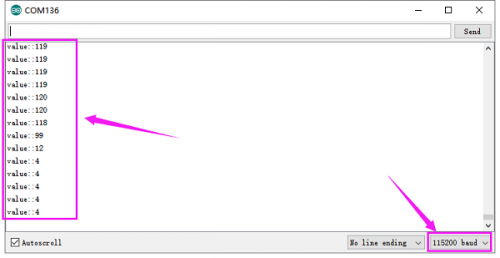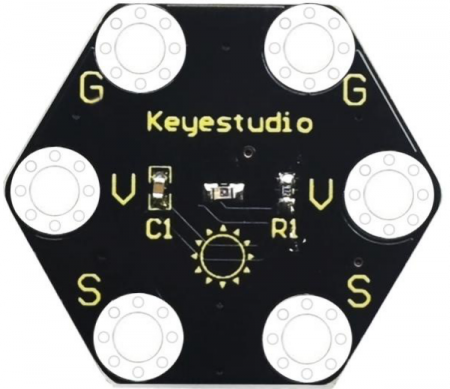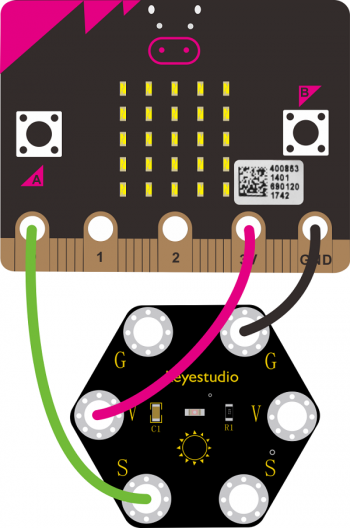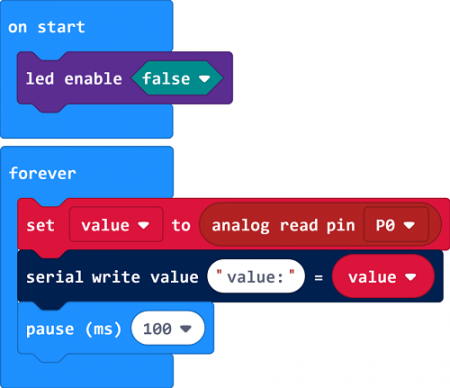Ks0491 Keyestudio Micro bit Honeycomb Photoresistor: Difference between revisions
Keyestudio (talk | contribs) |
Keyestudio (talk | contribs) |
||
| Line 33: | Line 33: | ||
==Resources == | ==Resources == | ||
*'''Download relevant code:''' https:// | *'''Download relevant code:''' https://1drv.ms/u/s!ArhgRvK6-RyJhUWF5mYZt0syo0iL?e=1gCz3o | ||
<br> | <br> | ||
Revision as of 09:48, 18 March 2020
Description
The Keyestudio micro bit honeycomb photoresistor is fully compatible with micro bit control board. In the experiment, we connect it with the micro: bit by a crocodile clip. There are 6 sockets on it, 2 G, 2 V and 2 S are connected. Additionally, G is GND, VV is VCC, and S is the signal end of the module.
The sensor mainly includes a photoresistor, and its resistance varies with the lightness. the brighter the light is, the higher the resistance is, otherwise, the lower the resistance is. During the test, we test the analog value of S end via micro: bit control board. The brighter the light is, the larger the analog value is, the darker the light is, and the smaller the analog value is.
Parameters
- Working voltage: DC 3.0-5V
- Working current: 60mA
- Maximum power: 300mW
- Working temperature: -25 ℃ --65 ℃
- Dimension: 30mm * 27mm * 5mm
- Weight: 2.0g
- Environmental attributes: ROHS
Connection Diagram
Test Code
Test Result
Wire according to connection diagram, after connecting the computer to power on with USB cable and upload the code successfully, open the serial monitor software(like Arduino IDE), set baud rate to 115200. The analog value of S end is shown on the monitor. When covering sensor by hand, the analog value is decreasing fast. As shown below:

Resources
- Download relevant code: https://1drv.ms/u/s!ArhgRvK6-RyJhUWF5mYZt0syo0iL?e=1gCz3o


